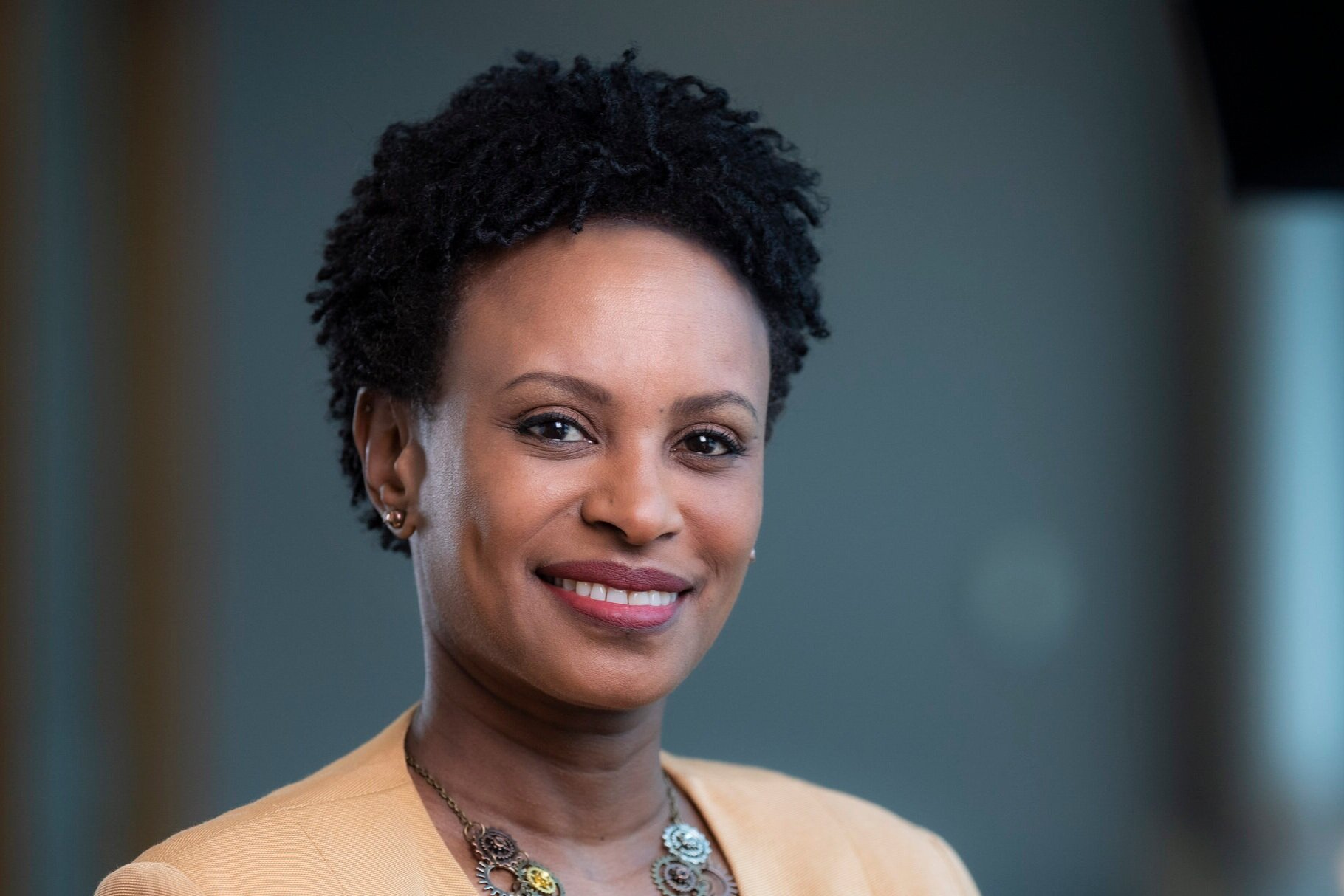Dr. Rhonda McEwen played a leading role in creating an autistic character on Sesame Street
March 7, 2023
In her younger years in Trinidad & Tobago, Dr. Rhonda McEwen enjoyed watching ‘Sesame Street’ after school.
The fun program bridges educational and cultural gaps and is a children’s favourite.
“Just give me the first bar and I could do skits and finish them,” said the Victoria University President & Vice-Chancellor. “It was one of the few educational programs on the local television channel. Because of the content, parents felt comfortable letting their children watch it. It was one of the few things my mother allowed.”
In adulthood, McEwen helped create an autistic character on Sesame Street that, in 2021, got its first full-time Black female puppeteer.
Julia, the first Muppet with autism, is a red-haired little girl crafted to support families and care providers while spreading public awareness about autism.
A few years ago, Sesame Street Communities (SSC) reached out to McEwen who has published research on touchscreen technology for children on the autism spectrum.
SSC builds on Sesame Street Workshop’s over five-decade commitment to address kids’ developmental, physical and emotional needs.
“At the time, they were just trying to find experts who are doing work in this area,” said McEwen who is also a Professor at the University of Toronto’s Mississauga Institute of Communication, Culture, Information & Technology. “They wanted to do programming that is understanding of autism.”
The academic leader was the only Canadian among six experts from North America that met in New Jersey nine years ago.
The group included Dr. Jeanette Betancourt who is the Senior Vice-President for the United States Social Impact at SSW that is Sesame Street’s non-profit.
“As content was developed, we give input and a Muppet was created,” said McEwen who is a member of the SSC advisory board. “That is where it got even more interesting because they usually don’t create Muppets.”
The Canada Research Chair (CRC) in Tactile Interfaces, Communication & Cognition said Muppets are a form of technology and media that can enhance accessibility and inclusivity.
“We used to think of technology as just digital devices,” the University of the West Indies graduate said. “Technology is really about how science is used to do something specific. In this case, we were using not just the Muppet in the soft form, but digitally. The animation, the online videos and the games created around the Muppet were all part of how we could spread awareness, understanding and education on autism, especially for children.”
Working on Julia, noted McEwen, was a highlight of her research career.
As the mother of a 19-year-old daughter with autism spectrum disorder, she said a decision was made very early in the workshop that the Muppet would be female.
“That was a major decision because, at the time, the statistics pointed to boys and men being more frequently diagnosed with autism than girls and women,” said McEwen who leads and champions inclusion initiatives. “Many of us have young girls or ladies at home who were not properly diagnosed. For my career, the work was personal and I was able to use my research to support families who do not have the resources.”
‘Sesame Street and Autism: See Amazing in All Children’ features Julia in videos, apps and print and digital stories, including an e-book, ‘We’re Amazing 1,2,3!’ which McEwen helped create.
What can parents with autistic children take away from the multi-media initiative?
“There are online resources available for parents that will enable them to try to explain, using the knowledge of their own children, what autism is,” the telecom engineer said. “There are videos, skits, programming and games designed for the way they learn best. There are also resources for siblings that offer them a way to explain to people about their brother or sister.”
Examining technologies and applications to support young people’s interaction with the world form a big part of McEwen’s research and studies.
In 2017, she and Adam Dube co-authored ‘Understanding Tablets from Early Childhood to Adulthood’ that offers an alternative to dominant and populist narratives that young people are intuitively able to successfully use tablet devices.
Adopting a research-driven approach, the book contests the ideology that touch-technologies are easier to understand and identifies the factors that contribute to communicative encounters between users and tablets. Communication theory and cognitive psychology concepts and methods are employed to offer an epistemological exploration of user-tablet interaction with a focus on the use of these technologies in educational settings.”
McEwen’s doctoral dissertation, ‘A World More Intimate: Exploring the Role of Mobile Phones in Maintaining and Extending Social Networks’, investigated the roles that mobile phones play in supporting relationships of young people as they transition to and through their first-year of university in Toronto.
Focussing on information practices during a transition that tests the resilience of support networks, the study queried the extent to which mobile phones play a role in keeping relationships intact, thus enabling students to maintain a sense of social cohesion and belonging.
As a CRC, McEwen is studying the cognitive effects that arise when children interact with voice- and touch-input social robots, with a focus on communication within families.






